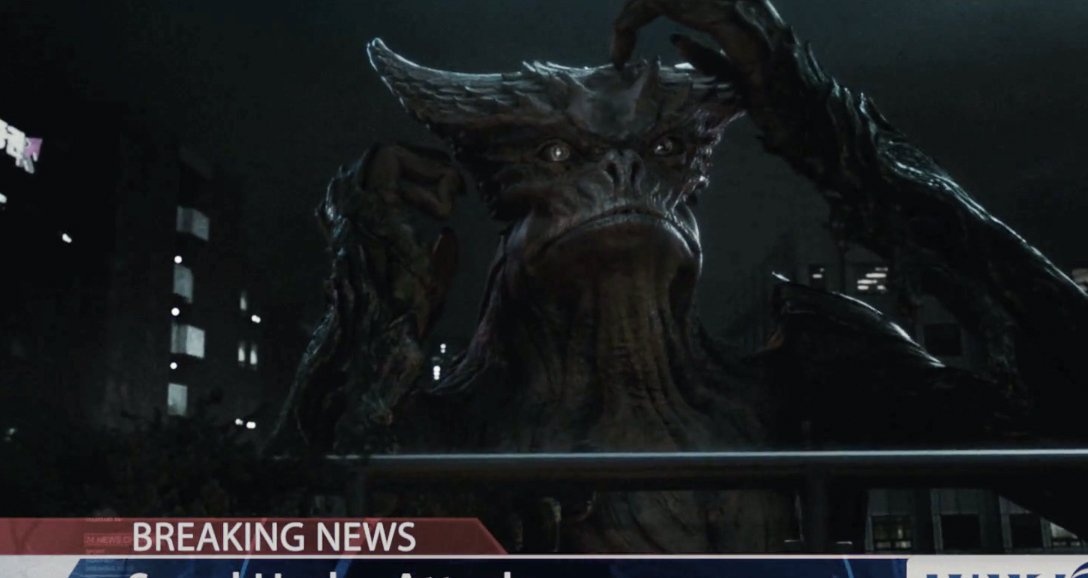Colossal is the unholy offspring of an Asian monster movie and an indie “back to the hometown” flick. Wait….unholy is incorrect. What’s the word? Unexpected, that’s it. Anne Hathaway and Jason Sudeikis dig deep to tell an unexpected and compelling story about a monster destroying Seoul. And ya know, finding truths about the human condition.
It has not been Gloria’s (Hathaway)…day? Week? Year? Either way, she’s been going through the motions of her booze filled life. That life gets upended when her boyfriend Tim (Dan Stevens) breaks up with her, and she moves into her empty old childhood home. Desperate for companionship, she reconnects with her childhood friend Oscar (Sudeikis) and his group of regulars at the bar he owns. Not great for an alky, but it passes the time for Gloria – until she realizes that she also shows up in South Korea as a giant monster.
While on the nose, what makes Colossal great is its commitment to its allegory: “the monster in us all.” Set design really helps drive home the point. We see the interiors of the bar, Gloria’s house, Oscar’s house, and the playground where the transformation takes place. Oscar’s bar has a walled off back section that Oscar is terrified to open to the world. Hmm…wonder why? Gloria’s house is blank and temporary, while Oscar’s is a dark hot cluster word that rhymes with luck, and the furniture they exchange can totally be seen literal and figurative. Where do all types of kids deal with their issues? On the monkey bars. This all culminates in the third act where the allegory pushes into how we deal with our monsters and if they can change or not. The commitment and attention to detail infused in the screenplay makes Colossal’s allegory land, instead of just being an indie gimmick.
Credit goes to Anne Hathaway and Jason Sudeikis. Both show off impressive acting chops playing against their previous types. Hathaway’s Gloria is a disheveled mess, but that would only draw pity. Hathaway really gives Gloria a slouchy meanness and narcissism that makes the audience actively dislike her. And even when she’s on the path to winning us back, she makes an awful decision putting her back into the audience’s doghouse. Hathaway does this to make the third act conflict mean more to her character, and to show how hard it is to try to rid yourself of your monster. Sudeikis is even more of a revelation. Usually seen as a happy go lucky sidekick or comedian, Sudeikis goes to deep, dark places in Colossal. The audience I was with uneasily laughed at him, thinking this movie is solely a comedy, but I was terrified of the guy. Sudeikis masks the darkness with a sweet façade that slowly erodes the more people drag him out of his stasis, and that erosion gives Colossal an unhinged terror it needs to keep the story engaging: a credit to Sudeikis’s talents.
Overlooking a lackluster summer movie slate, I will probably remember 2017 for its unexpectedly stellar early season offerings. Colossal fits nicely on this list before aliens, superheores, and reboots dominate our screens. And all it took was a little indie monster movie directed by a Spanish horror director named Nacho. I really hoped that the set designer was named Cheese, but sadly it was not to be.

